Maybe writing any novel requires you to be awesome, brave, and a little bit stupid. If that were true, I could put any novel from any genre on this list. Instead, I limited myself to horror, and chose novels that represent broader categories or tropes that are easy to execute badly. Many examples exist of authors who did just that. There are fewer—but still important—examples of authors who created their own unique take on a popular idea that worked really well.
There are really only two questions that need to be answered if you are considering recreating any of these novels in your own image. First, is there a different idea out there that hasn’t been tried that you are uniquely qualified and capable of creating instead? Second, if this is the idea you are determined to write, are you the person who can make it newer or better? Who knows, you might surprise us all. Or you might fail miserably. That’s true of any effort we undertake. The purpose of this list is not to suggest there is nothing new to say in the same arena as these novels or that all similar novels are bad. Ultimately, the purpose of this list is to help you clarify your thoughts as you choose your own path for your own work, no matter what this article or anyone else has to say about it.
![]() 1. "The Stand" by Stephen King
1. "The Stand" by Stephen King
This novel represents a few tropes, including apocalyptic or dystopian literature in general, and pandemic stories in particular. Speaking of which, there is about to be a flood of pandemic stories in publishers’ inboxes. It will be tough to get noticed in the middle of that email onslaught. It will be tough to create a pandemic story that is better than what already exists in The Stand, The Andromeda Strain by Michael Crichton, or White Fire by Brian Keene.
I know of a couple authors who were already in the process of writing pandemic stories before the 2020 pandemic broke in force. They are now writing into a tough market, even though they didn’t begin by following a trend. The stories that have the most potential may turn out to be ones that began separate from real-life events. I know Splatterpunk Award winning author Kristopher Triana was in the process of writing one, and if I had to bet on one new pandemic story to stand out and be original, I’d put my money on his. You’re an amazing author if you come up with something no one has seen in this type of novel.
Buy The Stand at Bookshop or Amazon
![]() 2. "The Call of Cthulhu" by H.P. Lovecraft
2. "The Call of Cthulhu" by H.P. Lovecraft
I could have used a different Lovecraft work or another cosmic horror novel from a more contemporary author, but this will make the point fine. There are a lot of wonderful and creative cosmic horror stories that represent the best of what horror has to offer. That makes it all the more difficult to create a standout work in the subgenre. That’s on top of the inherent challenge of writing a good cosmic horror story that balances what is seen and unseen, along with making that balance scary to modern horror readers. Cosmic horror fans in particular will be quite critical of a story that fails in this regard while also including too many mentions of tentacles. I suppose the danger is really found in taking the wrong lessons and borrowing the wrong pieces of these works when creating your own cosmic horror.
Buy The Call of Cthulhu at Bookshop or Amazon
![]() 3. "Bird Box" by Josh Malerman
3. "Bird Box" by Josh Malerman
There are a few pitfalls here. Some of this has as much to do with authors imitating visual media as opposed to the books themselves. When you are imitating what had to be changed to make a story work for the screen, you are missing what made it work as a book with a broader and more complex narrative.
Stories like Bird Box and A Quiet Place are innovative in creating horror where one of our senses is taken out of the equation. If done well, this can heighten a reader's experience through bold use of description and intensified action. If done poorly, it is a gimmick that doesn’t work in a particular writer’s hands.
A deeper dive into the story behind this novel’s rise reveals something even braver and more awesome. As I understand it from a couple different interviews, this novel was shopped for a screen adaptation before it was published. Once that deal was set, then the publishing deal was made. The manager behind that approach was Ryan Lewis, and he has set out to do it again. I believe it is okay to mention this because it has been said publicly in at least one podcast interview. Before Hollywood shut down for the pandemic, Lewis was shopping work by Max Booth III. This author impresses me a great deal with his writing and I hope these efforts resume once productions open back up.
Buy Bird Box at Bookshop or Amazon
![]() 4. "The Haunting of Hill House" by Shirley Jackson
4. "The Haunting of Hill House" by Shirley Jackson
This is another example where imitating recent adaptions can result in missing the elements that make the original story so timeless. Beyond that, ghost stories and haunted house stories represent a tough path for creating something new. The more gothic style of this novel is challenging to deliver effectively to modern audiences. In general, the nature of ghost and haunting stories often requires characters to choose to stay in danger while at the same time delivering escalating incidences of ghostly awfulness. There are ways around these traps for the awesome, brave, and stupid. The Perfectly Fine House by Stephen Kozeniewski and Wile E Young is a recent example of a novel that turns the whole concept away from what has come before.
Buy The Haunting of Hill House at Bookshop or Amazon
![]() 5. "The Exorcist" by William Peter Blatty
5. "The Exorcist" by William Peter Blatty
Possession stories hit a high point in the market of the late sixties, early seventies. There has been a resurgence or two since then. To a modern viewing or reading audience, a lot of what is in The Exorcist comes off as cliché. The reason has more to do with the number of times the story has been imitated than with the originality of the tale when it was first released. A Head Full of Ghosts by Paul Trembley is a solid example of taking this idea and adding elements to create something truly masterful where others fall into cliché. A Head Full of Ghosts makes you question whether you are really reading a possession story at all.
Buy The Exorcist at Bookshop or Amazon
![]() 6. "The Rising" by Brian Keene
6. "The Rising" by Brian Keene
Zombie stories. Many publishers literally include “no zombie stories” in the midst of their instructions about what font they want you to use. Still, as someone who ran a couple zombie blog tours for a few years, I can assure you—there are creative zombie stories out there. There are also many authors that think they've come up with a new twist on the genre. Most of them are wrong.
A funny thing about The Rising is that it went in an entirely different direction than the George Romero universe, and it spurred a resurgence of interest in the trope. Much of what followed reverted to the Romero universe of slow, mindless zombies.
I love slow, mindless zombies. I quit my teaching job to write slow, mindless zombie stories. I pay my bills in whole through full-time writing and in part by writing zombie stories. Quitting your day job to write zombie stories is definitely stupid, but it might be brave and awesome, too.
My friends are going to be so mad I didn’t mention their books here. I might have to do another article about best zombie books. Some of them will be even madder when they don’t get mentioned in that article either.
Buy The Rising at Bookshop or Amazon
![]() 7. "Twilight" by Stephenie Meyer
7. "Twilight" by Stephenie Meyer
I know some of you felt something pop inside your brain at the reminder of the sparkling vampires of The Twilight Saga. I could have put Dracula or any other vampire novel here, but I prefer to cause the bile to rise up in the back of your throat.
Vampires never go completely out of style. There is a lot that has been done with them, and it’s fun to do it again. If you pick now to write your romantic vampire saga, your bloody vampire rampage story, or your secret vampire empire war series, you are brave and maybe a little stupid. It’s up to you to show how awesome you really are.
Have I started my own vampire trilogy that I’m in the middle of? Yes, but this isn’t about me or how awesomely stupid I am.
Buy Twilight at Bookshop or Amazon
![]() 8. "Survivor" by J.F. Gonzalez
8. "Survivor" by J.F. Gonzalez
This example could possibly be the one that is least familiar to most readers. How can I be trying to recreate something I’m not even aware of? Valid question.
This novel is arguably the ultimate example of an extreme horror story. Extreme horror has a definite following within the community of horror readers. It is a tempting direction to go for authors attracted to horror. Why wouldn’t you take it as far as your imagination can go?
Survivor succeeds where other attempts devolve into torture porn. It’s a difficult art to balance love for the devious nature of the scenes and how those moments serve the story and characters. Even masters of extreme horror struggle to get it right. I wouldn’t deter anyone from trying their hand at it, but it will take work and skill to top what the best in extreme horror have already created.
Buy Survivor at Bookshop or Amazon
![]() 9. "Goosebumps" by R.L. Stein
9. "Goosebumps" by R.L. Stein
This is the second entry that really refers to a series more than an individual novel. Stein's Fear Street is another great series for younger readers. Writing horror or dark fiction for kids is a tricky proposition. Leveling the peril and choosing vocabulary appropriate for the audience both add additional difficulties to the task of trying to write a good story. As with all genres, there are rules the audience expects you to follow, and in this case, you also have to appeal to and get through the gatekeepers of the readers’ parents. If you get the books to the kids and they love the books, many parents will buy anything you write to keep their children reading. It’s a bold move to try to create the next Goosebumps. It was bold and against conventional wisdom when Stein did it the first time. He has a great Masterclass on writing horror for children that I found very useful, even as I broke some of his rules.
Buy Goosebumps at Bookshop or Amazon
![]() 10. "House of Leaves" by Mark Z. Danielewski
10. "House of Leaves" by Mark Z. Danielewski
Publishers will thank you if you don’t try this one. This novel stands in for all experimental media. This is ergodic literature where everything from the words, the font, the configuration of the text, the type of paper, to extra physical pieces within the book itself becomes part of the experience. Even the effort required to read the book becomes part of the story.
These types of novels don’t always translate well to other media formats. They can also be expensive to publish, and they are often impossible to create and market on a mass level. If writing a good story that anyone wants to publish or read is tough enough, writing an experimental tale requires that much more skill. Other than that, I suppose there is nothing stopping you.
Should you do it? Should you try to reinvent any one of these novels? Many people between you and publication will tell you not to. With all of these types of novels, as an author, you have to decide what you are borrowing, what you are recreating, and what you are inventing. There is risk and reward in going where others have already gone, just as there is in doing something new. You must decide for yourself what you dare to do. We need people willing to be awesome, brave, and stupid sometimes.

About the author
Jay Wilburn lives with his wife and two sons in beautiful Conway, South Carolina. He is a full-time writer of horror and speculative fiction. Jay left his job as a teacher to become a full time writer and has never looked back. Well, that’s not entirely true. He wants to be sure he isn’t being followed, so he looks back sometimes.
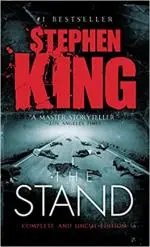 1. "The Stand" by Stephen King
1. "The Stand" by Stephen King
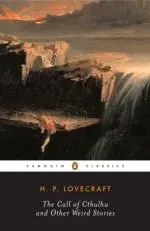 2. "The Call of Cthulhu" by H.P. Lovecraft
2. "The Call of Cthulhu" by H.P. Lovecraft
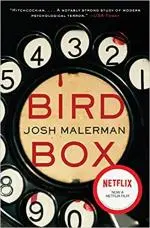 3. "Bird Box" by Josh Malerman
3. "Bird Box" by Josh Malerman
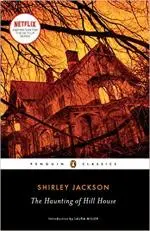 4. "The Haunting of Hill House" by Shirley Jackson
4. "The Haunting of Hill House" by Shirley Jackson
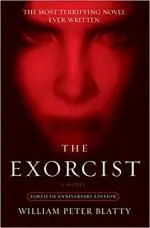 5. "The Exorcist" by William Peter Blatty
5. "The Exorcist" by William Peter Blatty
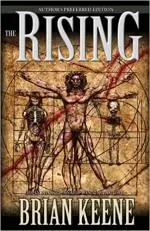 6. "The Rising" by Brian Keene
6. "The Rising" by Brian Keene
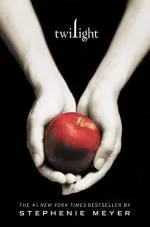 7. "Twilight" by Stephenie Meyer
7. "Twilight" by Stephenie Meyer
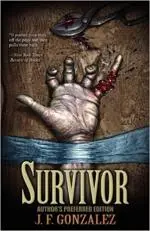 8. "Survivor" by J.F. Gonzalez
8. "Survivor" by J.F. Gonzalez
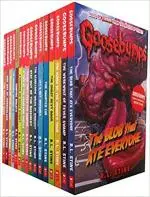 9. "Goosebumps" by R.L. Stein
9. "Goosebumps" by R.L. Stein
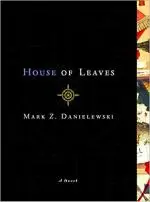 10. "House of Leaves" by Mark Z. Danielewski
10. "House of Leaves" by Mark Z. Danielewski








